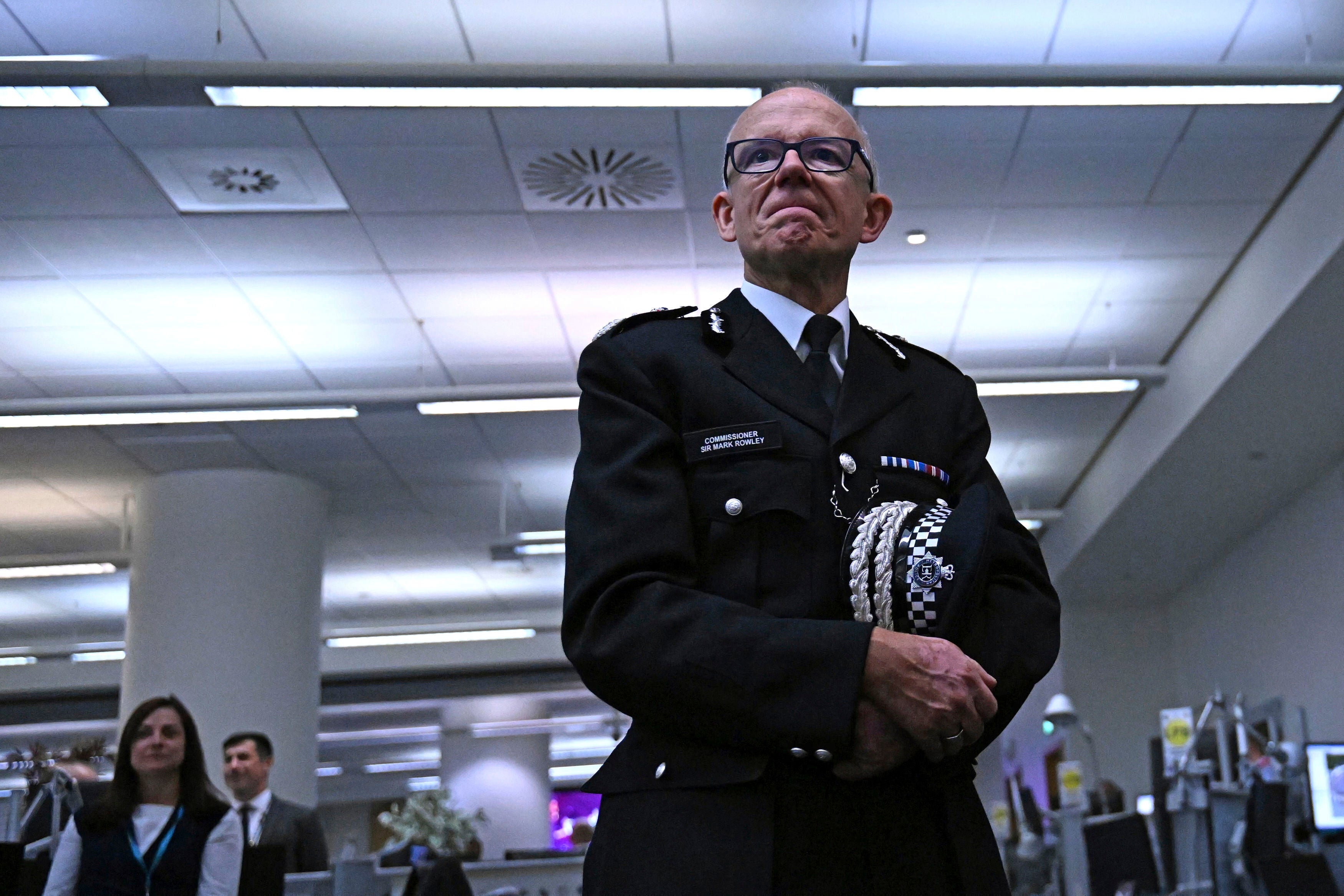Head of UK's biggest police force says sorry for past treatment of LGBTQ+ community
The head of Britain’s biggest police force has apologized for the department's past treatment of the LGBTQ+ community

Your support helps us to tell the story
From reproductive rights to climate change to Big Tech, The Independent is on the ground when the story is developing. Whether it's investigating the financials of Elon Musk's pro-Trump PAC or producing our latest documentary, 'The A Word', which shines a light on the American women fighting for reproductive rights, we know how important it is to parse out the facts from the messaging.
At such a critical moment in US history, we need reporters on the ground. Your donation allows us to keep sending journalists to speak to both sides of the story.
The Independent is trusted by Americans across the entire political spectrum. And unlike many other quality news outlets, we choose not to lock Americans out of our reporting and analysis with paywalls. We believe quality journalism should be available to everyone, paid for by those who can afford it.
Your support makes all the difference.The head of Britain’s biggest police department has apologized for the force's past treatment of the LGBTQ+ community, a move that one human rights activist called a “groundbreaking” acknowledgement that would help build confidence in law enforcement.
The statement Wednesday from Metropolitan Police Commissioner Mark Rowley came after gay rights activist Peter Tatchell launched a campaign calling for all British police departments to apologize for “past homophobic witch hunts,” which continued even after Britain decriminalized private sexual acts between men in 1967.
In a letter to Tatchell, Rowley acknowledged that the way in which police enforced the law “failed the community and persist(s) in the collective memory of LGBT+ Londoners of all ages.’’
“Recent cases of appalling behavior by some officers have revealed that there are still racists, misogynists, homophobes and transphobes in the organization, and we have already doubled down on rooting out those who corrupt and abuse their position,” he said.
Rowley became commissioner of London's Metropolitan Police Service in September, pledging to reform a department that had been rocked by a series of scandals, including the arrest of a serving officer for the kidnap and killing of a young woman.
In March, the police force apologized after an independent review found that the department had lost the confidence of the public because of deep-seated racism, misogyny and homophobia.
“I am clear that there is much for us to do,” Rowley said in his letter to Tatchell. “I am sorry to all of the communities we have let down for the failings of the past and look forward to building a new Met for London, one all Londoners can be proud of and in which they can have confidence.”
Tatchell thanked Rowley for being the first U.K. police chief to apologize for the “decades-long victimization” of the LGBTQ+ community.
“His apology is a ground-breaking step forward that will, we hope, spur other police forces to follow suit,” Tatchell said. “It draws a line under past Met persecution. This will help strengthen LGBT+ trust and confidence in the police, encouraging more LGBTs to report hate crime, domestic violence and sexual assault.”